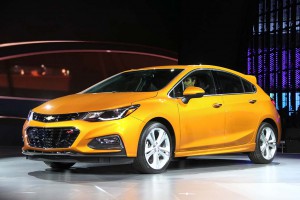A new study from the Massachusetts Institute of Technology that uses information on driving habits from various urban areas, GPS data and daily energy usage indicates that electric vehicles could handle 87% of the driving needs of the American public.
MIT developed a model that combined information from expansive travel surveys with high-resolution GPS data to estimate the energy requirements of personal vehicle trips across the U.S.
“We find that the energy requirements of 87% of vehicle-days could be met by an existing, affordable electric vehicle. This percentage is markedly similar across diverse cities, even when per capita gasoline consumption differs significantly,” according to an abstract published in the journal Nature Energy.
“We also find that for the highest-energy days, other vehicle technologies are likely to be needed even as batteries improve and charging infrastructure expands. Car sharing or other means to serve this small number of high-energy days could play an important role in the electrification and decarbonization of transportation.”
The study also found that electric vehicles can contribute to climate change mitigation if coupled with “decarbonized” electricity, electricity produced by using power from something other than coal or oil. But only if vehicle range matches travelers’ needs. Evaluating electric vehicle range against a population’s needs is challenging because detailed driving behavior must be taken into account.
(Ford planning to launch first driverless car by 2021. For more, Click Here.)
With all the limits on electric vehicles — battery life, cost, the availability of charging stations — you might expect that at most 50% of the vehicles on U.S. roads could be replaced by more-sustainable cars.
MIT noted in the study EV usage would reduce total U.S. gasoline consumption by 60% and to a 30% decline in the 1.8 billion metric tons of greenhouse gas emissions emitted by all American transportation in 2014. Transportation represents 26% of America’s total greenhouse gas emissions.
Currently 0.7% of vehicles in the U.S. are electric, and plug-in electric vehicle sales declined 17% from 2014 to 2015.
The findings represent the “technical potential” of electric that shows how many households could start living more sustainably now, said Jessika Trancik, who led the study. In a two-car household, having one electric car and one conventional vehicle could meet drivers’ needs across the country and significantly increase the number of electric vehicles on the road.
(Tesla plans to make its Autopilot more robust to avoid further problems. Click Here for the latest.)
The MIT study also found that more affordable electric vehicles, such as the Ford Focus Electric and the Nissan Leaf, could meet American energy and affordability needs if people recharged their cars just once daily, either overnight at home or during the day at work.
In addition, the scarcity of public charging stations, which electric vehicle companies such as Tesla have made an issue, would not be as pressing, the study said.
While electric vehicles’ sticker prices are higher, the researchers also concluded that their operating costs would be lower than for conventional cars, making the overall costs comparable.
(Carmakers enter “gray zone” as they roll out semi-autonomous technology. Click Here for the full story.)
The study noted that rural areas had a slightly smaller adoptive potential than urban areas but found similar potential across different types of cities, ranging from more compact cities such as New York and to more sprawling cities like Los Angeles.


Interesting picture for this story, especially since it is not an electric car. That is the new Cruze Hatchback in RS trim. Gasoline powered only.
Mislabeled image in our archive. We’ll fix.